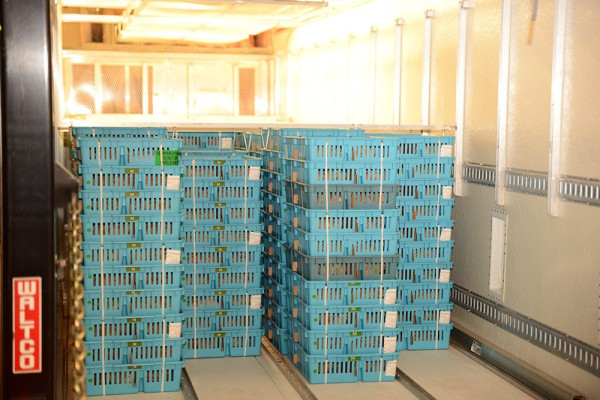At Cobb-Vantress, we know an efficient export process is fundamental to delivering a quality product to international customers. Careful planning and thorough documentation are essential to accuracy, particularly when you are transporting live animals. This is a specialty and one that we have perfected in our more than 103 years of business.

Chicks are transported in our top-of-the-line, temperature-controlled trucks to the airport.
Today, the vast majority of our shipments are day-old chicks. Their welfare during transport to customers is our top priority. To accomplish this, our team of export specialists follows strict biosecurity protocols and works carefully to meet the unique requirements of each country, including special paperwork or additional testing. To avoid any potential customer delays, this process starts early, often before the eggs have started incubating.
After documentation is underway, we follow the journey of a chick through:
- Cobb farms. Cobb operates three types of farms to produce and collect eggs: pedigree, great-grandparent and grandparent stocks. The eggs are collected, sanitized and transported to a hatchery twice a week in company-dedicated, temperature-controlled trucks.
- Incubation hatchery. At the hatchery, eggs are carefully incubated until they hatch at 21 days. Chicks are then graded to ensure quality chicks are selected for each international order. Trained personnel service the chicks with vaccines and any specific treatments requested by individual customers.
- Hatchery. Chicks are then placed in shipping boxes, counted and recounted to ensure accurate quantities. A minimum of two data loggers is placed with each shipment to monitor temperature conditions from origination to destination.
- Transportation. The chicks are transported in our top-of-the-line, temperature-controlled trucks from hatchery to airport. But long before the shipment is ready, Cobb’s export representative works with a freight-forwarding agent to select the best flight options for each order. We adhere to strict biosecurity and animal welfare protocols and policies to maintain the health of the chicks, including cleaning and disinfecting trucks prior to each load of chicks. Additionally, the team regularly evaluates random samples of chick transport equipment to ensure the integrity of the process and that chicks are loaded into a pathogen-free environment.
- Freight agent and airline. Once at the airport, the specialized freight agent coordinates the stacking of chick boxes onto aircraft pallets. This configuration is important, as adequate airflow for the chicks must be maintained. The freight specialist then delivers the chicks and the necessary documentation to the airline.
- Flights. Shipping the chicks via air can be accomplished through direct or indirect flights. In the event of indirect flights, we always select airlines with short layovers (around four hours) and with temperature-controlled facilities to ensure continuous chick comfort during transport.
- Arrival at destination. Once at the destination, our customer’s broker agent works diligently to achieve a quick release of consignment from the local Customs and Animal Health Authorities. Once the proper clearance has been awarded, customers pick up their shipment and deliver it to a farm.

Our eggs are collected, sanitized and transported to hatcheries twice a week in company-dedicated, temperature-controlled trucks.
Our commitment to exports does not stop with company-owned processes. We pioneered the use of an electronic health certification system for day-old poultry in coordination with the United States Department of Agriculture (USDA), serving as the first company to pilot this model in Canada and Guatemala. Although only a few countries in Latin America and South Korea currently use this system, Cobb continues to work with the USDA to expand the list of countries willing to accept this documentation, because the future of documentation is electronic.
As the global demand for poultry continues to rise, so too does our focus on maintaining consistent stock delivery to customers around the world. Our team of export specialists is ready to address everything from logistical challenges to biosecurity and trade disruptions.


